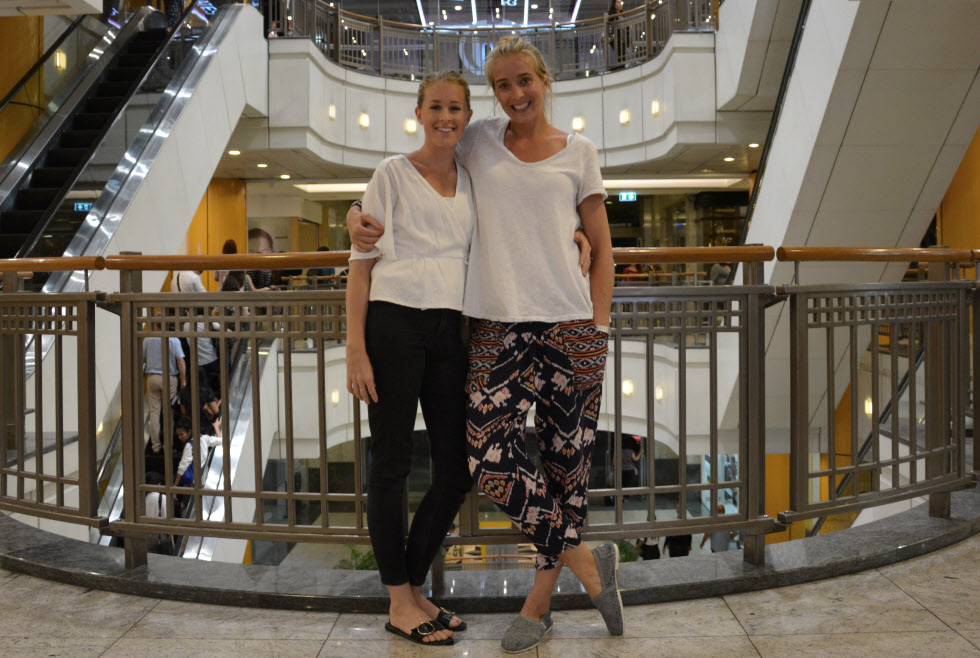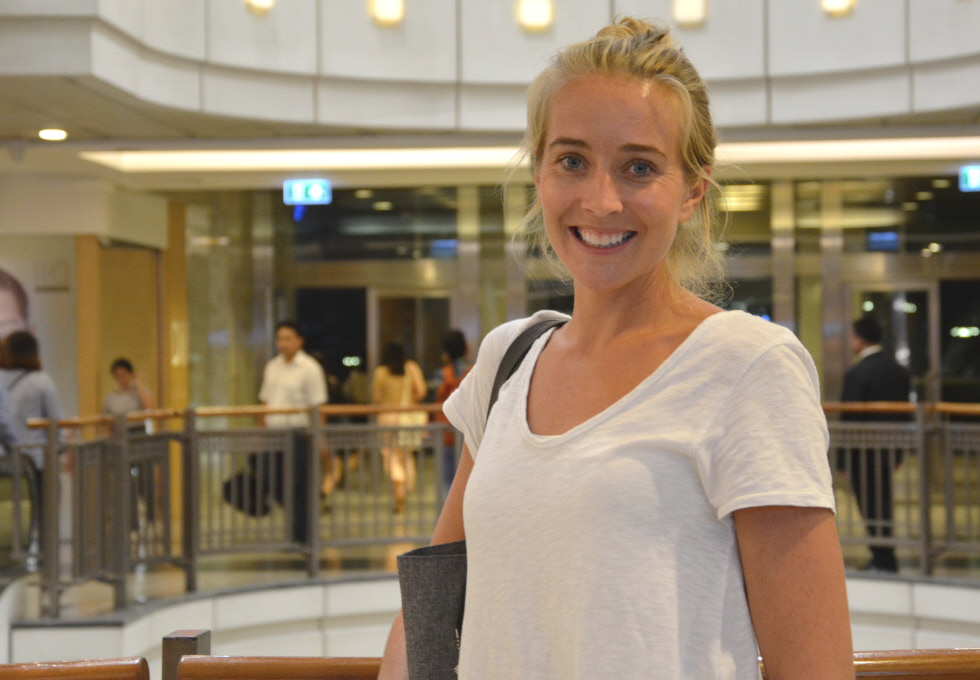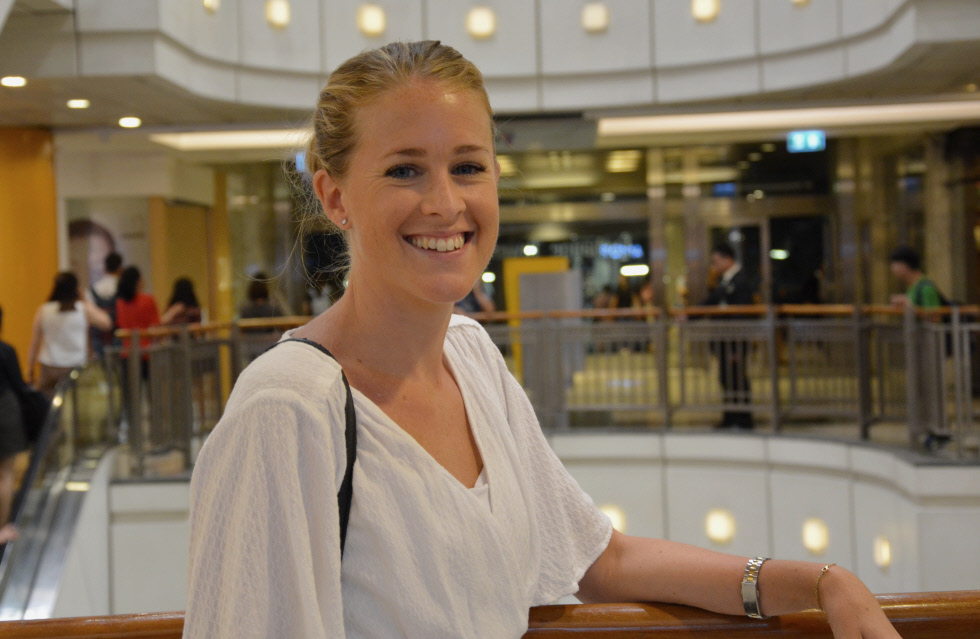Moving abroad with young children forces parents to take deliberate choices about their child’s upbringing that parents not living abroad do not have to think about. Two parents being aware of this are Hanna Tjernberg and Emma Campbell from Sweden, who raise their preschool kids in Thailand.

Moving with kids to a new country can cause many new considerations to rise that fellow parents back in your home country do not have to think about. Two parents who packed their suitcases and had children thousands of kilometers away from their native country are Hanna Tjernberg and Emma Campbell.
Both of them are from Sweden and have lived in Bangkok, the capital of Thailand, with their families for six years. Hanna Tjernberg has two boys at age 1,5 and five years old, while Emma Campbell has two daughters, one soon to turn one year old and another at age four, who just started school.
English in school
To Emma Campbell there is no doubt about the importance of thinking about the future when bringing a child up abroad:
“As a parent outside Sweden you need to have a bit of a plan for your children, so they actually have the opportunity to go back to Sweden, when they get older,” she says.
School is a subject where both mothers have made deliberate choices based on what they think their children will benefits from later on. The ones of their children already in school are enrolled in international schools, where they are taught in English. That means the children from an early age speaks English fluently.
“By having English as a fluent language, I think you open up for so many opportunities in the future,” says Hanna Tjernberg.
Emma Campbell does not know when the family will return to Sweden, while Hanna Tjernberg plans on moving back in a couple of years. She has no doubt that her children also will be enrolled in an international school in Sweden, because she wants them to maintain their English skills.

Speaking Swedish
The plans about school days in English has nothing to do with the children not mastering the Swedish language. Both Hanna Tjernberg and Emma Campbell’s children speak fluent Swedish and it is a priority to both of the families that they continue to do so.
“If you are Swedish, I think you should speak the language. To me it is a part of who you are,” says Emma Campbell.
One of the ways their children are taught the Swedish language are in Saturday playgroups arranged by the Swedish school association of Bangkok. In the playgroups the young children can play with other Swedish children and in that way practice their language skills.
“I think it is a great way for the children to keep the Swedish language going, because they know that every week they will do something in Swedish,” says Emma Campbell.
The Swedish school association is not only about the Swedish language, but also about Swedish traditions. Things like Swedish food and Swedish Christmas carols help the kids to know what is considered typically Swedish.
“I think there are certain things you need to know, if you are from Sweden. I do not want my kids to go back to Sweden and be left out because they do not know persons such as Astrid Lindgren,” says Hanna Tjernberg.
Third culture kids
Speaking more than one language is one of the benefits that children who grow up abroad can enjoy. Children who spent most of their upbringing in a culture different to their parents’ culture are called third culture kids. They are often the kids of expat families who move to one or several different countries.
Third culture kids’ definition of their own nationality might not be as clear as their peers who grow up in the same country that their parents come from. Are they Swedish, if they did not grow up or even were born in Sweden? Are they Thai when they grew up in Thailand, but have Swedish parents? For some third culture kids questions like these can lead to a feeling of not truly belonging anywhere.
That is a worry that sometimes crosses Emma Campbell’s mind. Her husband is British-Canadian, and his family lives in Canada, Spain and Nigeria. That means several nationalities are mixed into their children’s identities. Therefore, Emma Campbell tries to give her children strong connections to the countries by visiting regularly and stay in touch with the families.
For Hanna Tjernberg the situation is a bit different. Her husband is Swedish, and their two boys have parts of their Swedish family close by, since one grandmother, two uncles and three cousins live in Bangkok. That has made their bond to Sweden very strong: “My oldest son really feels he is Swedish. Every time someone in school asks him where he is from, he answers Sweden. He also loves to wear the Swedish t-shirt in school when they play football”.

Home is where the family is
Having a strong family core with family traditions is often considered one of the ways to prevent third culture kids from feeling rootless. In that way ‘home’ becomes more connected to the family than to a specific country.
The two mothers agree that spending time together as a family is a way to maintain the family core: “I think it is important to have as much family time as possible, where you do your own small family traditions together. For us, it is to have cosy Friday nights and go to the Swedish playgroup every Saturday,” says Hanna Tjernberg.
Even though her oldest son says he is Swedish, he also feels at home in Thailand: “He loves Bangkok and it is his home. But I want him to feel that Sweden also can be home and not just a place we go for holidays – if we decide to move back,” says Hanna Tjernberg.
Both of Emma Campbell’s daughters are born in Thailand, but the oldest calls both Sweden and Thailand home.
“Right now, I think she is aware that she is Swedish-Canadian. But as she gets older, I think she will get more and more aware that she is a citizen of the world,” she says.
The future
Hanna Tjernberg and Emma Campbell’s children might be young, but the mothers think the time spent abroad will benefit them in the future.
“When my kids grow up, I think they will have an opinion about where to live, because they have seen that there are actually other options than just staying in your parents’ country. I hope they will see the opportunities instead of being scared of them,” says Emma Campbell.
Sometimes living abroad is not only beneficial. Being 8.000 kilometers away from parts of the family can be difficult for both parents and children: “Sometimes one of my sons say ‘I want to see my grandma or cousins in Sweden now!’. Then it is hard to answer ‘no, you will see them in eight months when we go back for holiday,” says Hanna Tjernberg.
At the moment, the benefits outdo the disadvantages, and the families stay in Bangkok for now.

